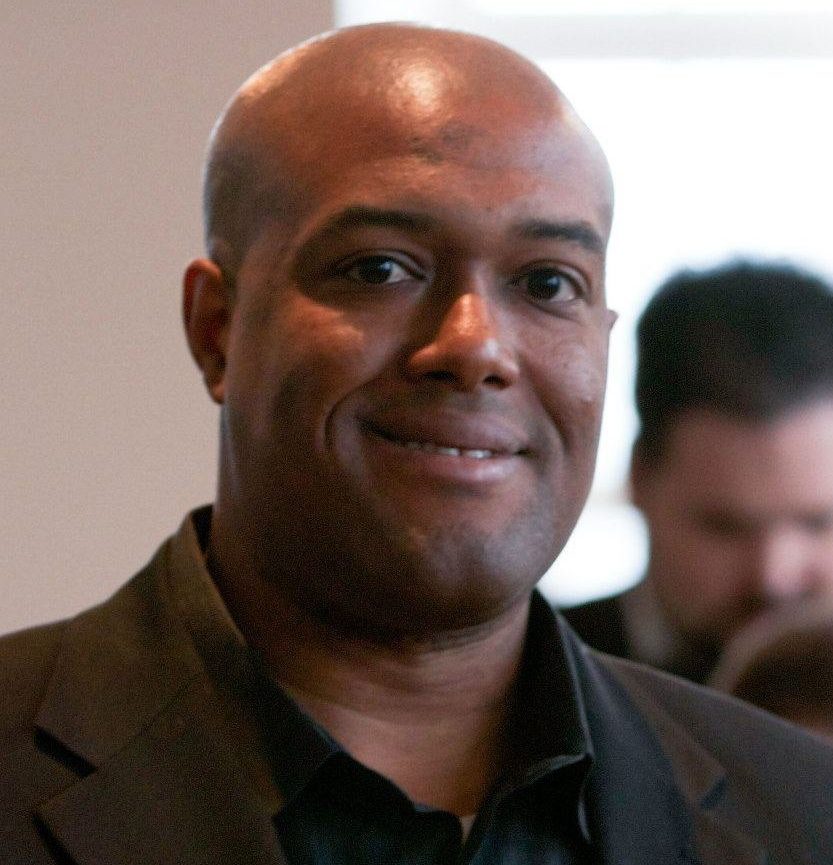Dr. Dan Young, director of the Doctor of Business Administration Program at Goldey-Beacom College, left a lucrative job as a financial advisor to follow his calling: teach as a Ph.D. at the university level, a field where only a tiny percentage of professors are Black — especially teaching business.
“I went to University of Delaware for undergrad and the master’s program, then went to Temple University for my Ph.D. in social and behavioral marketing, and we just did not see Black professors in business,” Young said. “There certainly are a good number of [Black] folks in many other disciplines, whether it’s African American studies, psychology or engineering, but there’s something about business where there always seemed to be some level of disconnect.”
At the same time, in Delaware and across the country, there has been a a renaissance of Black business owners, with Black women having the most startup growth in the United States, despite being the least funded.
“There’s a disconnect between extending that entrepreneurial and business spirit from main street to the classroom,” Young said.
When Young had the opportunity to move from teaching to administration at Goldey-Beacom, he took it: “In my role as an administrator, I know that I can have a greater impact on the representation of people who look like me in the classroom.”
Along with Wilmington University business professor Jason James, he’s started an ad-hoc initiative to put 100 new Black business professors in Delaware college and university classrooms by 2025.
Greater representation of Black people in business academia can lead to substantial change, said Young. It’s a position that helps to create the next generation of business leaders — including non-Black business leaders.
“More of [our input] will go into the minds of the people who are going out and creating those products,” he said. “By being their professor, they are going to spend a little bit more time thinking about what I, as their professor, will want in the product. In doing that, it gives a certain level of critical thinking that may not be the case if I looked like the average business professor.”
Young’s own doctorate program at Goldey-Beacom is already inclusive: With about 40 students, about 50% are African American, and 50% are women, and the faculty has a similar demographic.
“That’s on purpose,” he said. “I specifically recruit students and faculty members from diverse populations, and that allows me to take the best of the best who come in and never have to worry about ‘diversity’ because I’m recruiting from a diverse population. It’s not common, but for me, it was obvious.”
With Black activism on the rise, Young believes business administration is the college major for future leaders, helping students learn to mobilize and lead.
“Do [all] people need to become doctors? No. But what I can tell you is that the number one thing that you get when you get a doctorate is you learn how you learn,” he said. “You’re able to sift through data and commentary and make the best decisions and choices and be the best leader.”
Young encourages young people to take the initiative to find resources to pay for advanced degrees.
“When I went to Temple, I received an award called the Future Faculty Fellowship,” a program for students underrepresented in postsecondary education, he said. “I found it online. It provided me with four years of a grant to go to the school to get my Ph.D.” Other programs that support access to higher education include the PhD Project out of Chicago.
Scholarships are also widely available. In fact, Young says, every student who gets into the program at Goldey-Beacom gets a partial scholarship of about 66% of the total cost of tuition.
“My goal,” Young said, “is to create the most diverse pool of doctorally qualified students in the history of the state of Delaware.”

This editorial article is a part of Racial Equity Month of Technical.ly's editorial calendar.
Before you go...
Please consider supporting Technical.ly to keep our independent journalism strong. Unlike most business-focused media outlets, we don’t have a paywall. Instead, we count on your personal and organizational support.
Join our growing Slack community
Join 5,000 tech professionals and entrepreneurs in our community Slack today!

The person charged in the UnitedHealthcare CEO shooting had a ton of tech connections

From rejection to innovation: How I built a tool to beat AI hiring algorithms at their own game

Where are the country’s most vibrant tech and startup communities?


